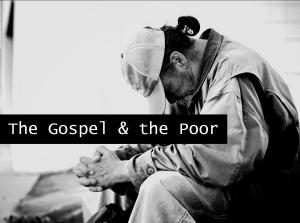 Deriving a standard definition for poverty in absolute terms is problematic. Poverty or being poor encompasses many things such as mindset, income level, management, ability, injustice, economic policy, joblessness, childcare, land laws, etc. Many attempts have been made to devise economic margins by which poverty may be measured. The most common way to measure poverty is according to a scale of ability to provide for yourself. So if an individual lacks “the financial resources to satisfy their basic needs and/or reach a minimum standard of living,”[1] they are considered poor. “According to the World Bank (2000), ‘poverty is pronounced deprivation in well-being.’ This of course begs the questions of what is meant by well-being and of what is the reference point against which to measure deprivation.”[2]
Deriving a standard definition for poverty in absolute terms is problematic. Poverty or being poor encompasses many things such as mindset, income level, management, ability, injustice, economic policy, joblessness, childcare, land laws, etc. Many attempts have been made to devise economic margins by which poverty may be measured. The most common way to measure poverty is according to a scale of ability to provide for yourself. So if an individual lacks “the financial resources to satisfy their basic needs and/or reach a minimum standard of living,”[1] they are considered poor. “According to the World Bank (2000), ‘poverty is pronounced deprivation in well-being.’ This of course begs the questions of what is meant by well-being and of what is the reference point against which to measure deprivation.”[2]
There is tension when using artificial margins to understand poverty. Artificial margins are helpful in understanding poverty on a large scale such as a national or global level. However, poverty is an issue centered on the state of specific individuals. The more specific you get when examining poverty, the less relevant the artificial margins are. There are different ways for poverty to be expressed; someone may be house poor, food poor, or health poor.[3] Ultimately though, poverty has to be dealt with on an individual level.[4]
Poverty has many faces. Poverty can be an expression of culture such as in the case of low cast Indian Hindu’s who are born into poverty and kept in poverty by their society.[5] Poverty can be temporary as in the case of someone between jobs. Poverty can be derived from poor choices such as gambling, alcohol addiction or it can be derived from other factors like a lack of education or disability. To be poor is “to be in need.” The term “need” may seem vague, but vague is what you arrive at when the definition requires generalization to the lowest common denominator. A loose definition of poverty allows for discussion of poverty in general that can be developed into a discussion of specific cases of poverty without demeaning all the other instances of poverty.
[1] Frederica Misturelli and Claire Heffernan. What is poverty? A diachronic exploration of the discourse on poverty from the 1970s to the 2000s. European Journal of Development Research, Dec2008, Vol. 20 Issue 4, p667.
[2] Jonathan Henry Haughton and Shahidur R. Khandker. Handbook on Poverty and Inequality. (Washington, DC: World Bank, 2009), 2.
[3] Ibid., 1.
[4] Jay Wesley Richards. Money, Greed, and God, (New York: HarperOne, 2009), 49-50.
[5] Misturelli and Claire Heffernan, 675.
Feel free to signup to receive this blog via e-mail or in your RSS reader. Links can be found at the top right hand corner of this page.
